Text
Agoda Hotel Data Scraping | Scrape Hotel Data From Agoda
Elevate your insights with Agoda Hotel Data Scraping Solutions, offering comprehensive, real-time data extraction for informed decision-making in the dynamic hospitality industry
Know More : https://www.travelscrape.com/agoda-hotel-data-scraping.php
0 notes
Text
How Does Web Scraping for Travel and Hospitality Data Help Travel Industry?
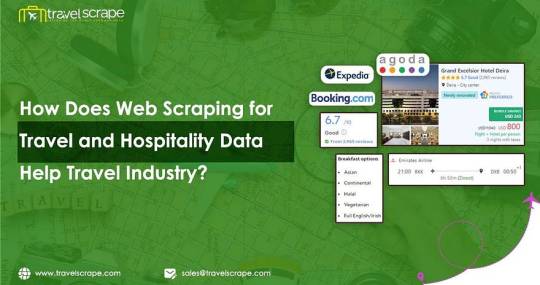
Introduction
In the competitive world of travel and hospitality, staying ahead of market trends, understanding customer preferences, and optimizing pricing strategies are crucial for success. One of the most effective ways to achieve these goals is through web scraping for travel and hospitality data. This method provides a powerful data collection solution for travel and hospitality industry, enabling businesses to gather valuable insights and make informed decisions. In this blog, we’ll explore how web scraping can help the travel industry, focusing on scraping travel and hospitality data, web scraping for the travel industry, and the benefits of hotel, travel and airline data scraping services.
What is Web Scraping?
Web scraping is the process of using automated tools or scripts to collect data from websites. This method allows businesses to gather large volumes of information quickly and efficiently, which can then be analyzed for various purposes. Web scraping for travel and hospitality data involves extracting information from travel websites, hotel booking platforms, airline ticketing sites, and review platforms. This data can include pricing information, customer reviews, availability, and much more.
Importance of Web Scraping in the Travel Industry

The travel industry is highly dynamic, with prices and availability changing frequently. Having access to real-time data is essential for making informed decisions. Here are some key reasons why web scraping is important in the travel and hospitality industry:
Competitive Pricing: Web scraping allows travel companies to monitor competitors’ prices in real-time. This information is crucial for dynamic pricing strategies, ensuring that businesses remain competitive while maximizing revenue.
Market Trends: By scraping data from various sources, businesses can identify emerging trends in travel preferences, popular destinations, and seasonal demand patterns. This helps in tailoring marketing strategies and offerings to meet current market demands.
Customer Insights: Extracting customer reviews and ratings from multiple platforms provides valuable insights into customer satisfaction and preferences. This information can be used to improve services and enhance the overall customer experience.
Availability and Inventory Management: Web scraping can help travel companies keep track of inventory levels, such as hotel room availability or flight seats. This ensures accurate and up-to-date information for customers, reducing the risk of overbooking.
Key Applications of Web Scraping for Travel and Hospitality Data
Competitive Pricing Analysis
One of the most significant benefits of web scraping for the travel industry is competitive pricing analysis. By continuously monitoring competitors’ prices, travel companies can adjust their pricing strategies to stay competitive. For instance, a hotel can use web scraping to track room rates of nearby hotels and adjust its prices accordingly to attract more guests while maximizing revenue.
Market Trend Analysis
Understanding market trends is essential for developing effective marketing strategies. Web scraping allows travel companies to gather data on popular destinations, travel packages, and customer preferences. By analyzing this data, businesses can identify trends such as increasing demand for eco-friendly travel options or a rise in popularity of certain destinations. This information helps in crafting targeted marketing campaigns and developing new products that cater to current market demands.
Customer Sentiment Analysis
Customer reviews and ratings provide valuable insights into customer satisfaction and areas needing improvement. Web scraping can collect reviews from various platforms, such as TripAdvisor, Yelp, and Google Reviews. By analyzing this data, travel companies can identify common issues, understand customer preferences, and enhance their services. For example, if multiple reviews mention poor Wi-Fi connectivity at a hotel, the management can address this issue to improve guest satisfaction.
Inventory and Availability Tracking
Web scraping helps travel companies keep track of inventory levels and availability in real-time. For example, airlines can monitor seat availability on different flights, and hotels can track room occupancy rates. This information is crucial for managing bookings and ensuring that customers have accurate and up-to-date information. Additionally, it helps in optimizing inventory management and reducing the risk of overbooking.
How to Implement Web Scraping for Travel and Hospitality Data?
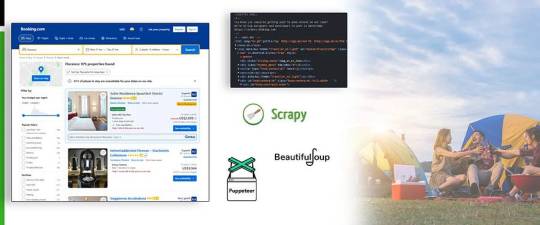
Implementing web scraping for travel and hospitality data involves several steps. Here’s a detailed guide on how to get started:
Identify Target Websites
The first step in web scraping is to identify the websites from which you want to collect data. These could include:
Travel booking websites (e.g., Expedia, Booking.com)
Airline ticketing sites (e.g., Delta, American Airlines)
Hotel booking platforms (e.g., Marriott, Hilton)
Review platforms (e.g., TripAdvisor, Yelp)
Inspect the Website Structure
Use browser developer tools to inspect the structure of the web pages you want to scrape travel and hospitality data. Identify the HTML elements that contain the data you need, such as pricing information, customer reviews, and availability details.
Choose the Right Tools
Several tools and libraries can be used for web scraping. Some popular ones include:
BeautifulSoup: A Python library for parsing HTML and XML documents.
Scrapy: An open-source web crawling framework for Python.
Selenium: A tool for automating web browsers, often used for scraping dynamic content.
Puppeteer: A Node.js library that provides a high-level API to control Chrome or Chromium browsers.
Write the Scraping Script
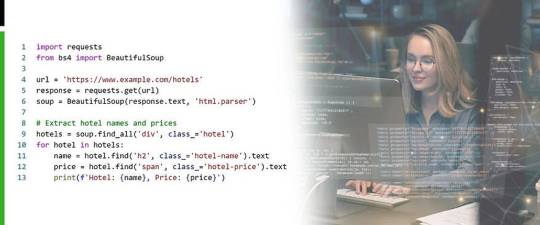
Using your chosen tool, write a script to extract the desired data. Ensure that your script can handle pagination if the data spans multiple pages. Here’s an example using BeautifulSoup:
Handle Anti-Scraping Measures
Many websites implement anti-scraping measures, such as CAPTCHAs and IP blocking. Here are some tips to handle these:
Use Proxies: Rotate proxies to avoid IP blocking.
Implement Rate Limiting: Avoid sending too many requests in a short period.
Solve CAPTCHAs: Use services like 2Captcha to solve CAPTCHAs automatically.
Store and Analyze the Data
After scraping, store the data in a structured format, such as a CSV file or a database. Use data analysis tools to derive insights from the collected data. This can involve sentiment analysis, trend analysis, and more.
Benefits of Using Hotel, Travel, and Airline Data Scraping Services
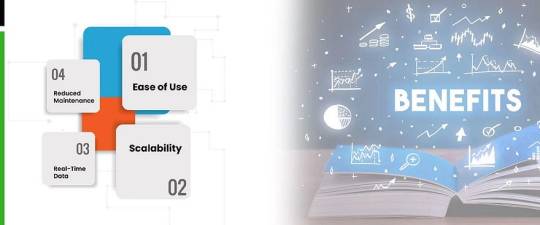
For businesses that prefer not to build their own scraping solutions, using hotel, travel and airline data scraping services offers several benefits:
Ease of Use: These services provide ready-to-use solutions, reducing the need for in-house development.
Scalability: They can handle large volumes of data, making them suitable for businesses of all sizes.
Real-Time Data: Many services offer real-time data, ensuring that businesses always have the latest information.
Reduced Maintenance: Using a third-party service means you don’t have to worry about maintaining and updating your scraping scripts.
Legal and Ethical Considerations
When using web scraping, it’s crucial to adhere to legal and ethical standards. Here are some best practices:
Respect Website Terms of Service: Always check and respect the terms of service of the websites you’re scraping.
Avoid Overloading Servers: Implement rate limiting to avoid overloading servers with too many requests.
Comply with Data Privacy Regulations: Ensure that your data scraping activities comply with regulations such as GDPR.
Future Trends in Web Scraping for the Travel Industry
As technology evolves, the methods and applications of web scraping in the travel industry are likely to expand. Here are some future trends to watch for:
AI and Machine Learning: Integrating AI and machine learning with web scraping can enhance data analysis, making it possible to uncover deeper insights and predictive analytics.
Blockchain Technology: Blockchain can provide more secure and transparent ways to scrape travel and hospitality data.
Advanced Automation: With advancements in automation, web scraping processes will become more efficient, reducing the need for manual intervention.
Enhanced Data Privacy: As data privacy regulations become more stringent, web scraping techniques will need to adapt to ensure compliance while still providing valuable data.
Conclusion
Web scraping is an indispensable tool for the travel and hospitality industry, providing a wealth of data that drives strategic decision-making. By extracting financial reviews data, monitoring market trends, and leveraging Reviews Scraping APIs, travel firms can remain competitive and responsive to ever-changing market dynamics. It’s essential to follow best practices and comply with legal standards to ensure ethical and effective data collection solution for travel and hospitality. As the industry evolves, so will web scraping techniques and applications, offering greater opportunities for innovation and insights. Embrace the power of Travel Scrape for comprehensive data solutions that drive success in the travel and hospitality industry. Explore our services today and transform your data strategy!
Know more>> https://www.travelscrape.com/web-scraping-for-travel-and-hospitality-data-help-travel-industry.php
#DataCollectionSolutionforTravelandHospitality#WebScrapingForTravelAndHospitalityData#ScrapeTravelandHospitalityData#CollectDataFromTravelandHospitality
0 notes
Text
How Does Web Scraping for Travel and Hospitality Data Help Travel Industry?
Learn how web scraping for travel and hospitality data provides insights into market trends, pricing strategies, and customer preferences in the travel industry.
Know more>> https://www.travelscrape.com/web-scraping-for-travel-and-hospitality-data-help-travel-industry.php
#DataCollectionSolutionforTravelandHospitality#WebScrapingForTravelAndHospitalityData#ScrapeTravelandHospitalityData#CollectDataFromTravelandHospitality
0 notes
Text
The Importance of Daily Data Collection from Hotel Aggregators
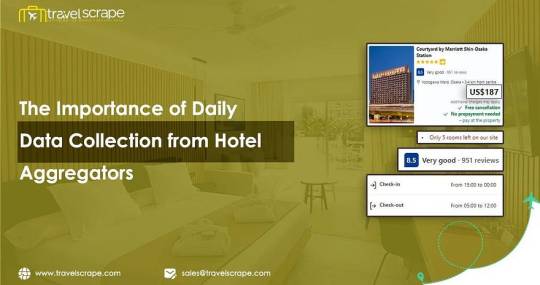
Introduction
In the modern hospitality and travel industry, staying ahead of the competition requires more than just offering excellent services. Data has become a critical asset, enabling businesses to make informed decisions, tailor their offerings to customer needs, and optimize their operations. One particularly rich source of this daily data is hotel aggregators. These platforms, such as PriceTravel, Expedia, Booking.com, and others, compile extensive information about hotels and accommodations, providing a treasure trove of data that can be harnessed for various strategic purposes. This blog delves into the importance of daily data collection from hotel aggregators, the techniques involved, and the benefits for businesses in the travel industry.
What are Hotel Aggregators?
Hotel aggregators are online platforms that compile listings from various hotels, allowing users to compare prices, amenities, and availability in one place. Major players like Expedia, Booking.com, and PriceTravel have become household names, offering a vast array of data on hotels worldwide. This data includes pricing trends, customer reviews, booking frequencies, and detailed descriptions of amenities and services.
About Expedia
Expedia is a leading online travel agency that offers a wide range of services, including booking for hotels, flights, car rentals, cruises, and vacation packages. Founded in 1996 as a division of Microsoft, Expedia has grown to become one of the largest travel platforms globally. It provides users with extensive travel options and competitive pricing, leveraging a vast database of travel information. Expedia’s comprehensive search tools and user-friendly interface make it a go-to resource for travelers seeking convenience and savings. Additionally, Expedia’s data serves as a valuable asset for market analysis and strategic decision-making in the travel industry.
About Booking.com
Booking.com, established in 1996 and headquartered in Amsterdam, is a premier online travel agency specializing in accommodation bookings. It offers a vast array of lodging options, from hotels and resorts to apartments and unique stays, across the globe. Renowned for its user-friendly platform and comprehensive search tools, Booking.com provides travelers with detailed information, customer reviews, and competitive pricing. The platform is available in numerous languages, catering to a diverse international clientele. Its extensive database and real-time availability make it a crucial tool for travelers and a significant resource for market insights in the hospitality industry.
About PriceTravel
PriceTravel is a prominent online travel agency based in Mexico, founded in 2000. It offers a comprehensive range of travel services, including hotel reservations, flight bookings, car rentals, vacation packages, and tours. Known for its competitive pricing and extensive network of partnerships with leading airlines, hotels, and car rental companies, PriceTravel provides travelers with diverse and affordable options. The platform is user-friendly and caters primarily to the Latin American market. PriceTravel’s robust search tools and customer service make it a trusted choice for travelers seeking convenience and value, and its data is a valuable resource for market analysis in the travel industry.
The Importance of Daily Data Collection from Hotel Aggregators

Competitive Pricing Strategy
One of the most significant advantages of collecting daily data from hotel aggregators is the ability to develop a competitive pricing strategy. By analyzing the pricing trends of competitors, hotels can adjust their rates to attract more customers while maximizing revenue. Understanding the market dynamics helps in identifying peak booking periods, popular destinations, and price elasticity, allowing for more strategic pricing decisions.
Market Trend Analysis
Aggregators provide a wealth of information about market trends. For instance, daily data on booking patterns can reveal which destinations are becoming popular, the types of accommodations travelers prefer, and seasonal variations in travel behavior. This information is invaluable for hotels looking to tailor their marketing strategies, plan for peak seasons, and develop new services that meet emerging market demands.
Customer Insights
Customer reviews and ratings on hotel aggregator sites offer deep insights into customer preferences and pain points. By analyzing this feedback, hotels can identify areas for improvement, enhance their service quality, and tailor their offerings to better meet customer expectations. Understanding what customers value most can also help in crafting targeted marketing campaigns that resonate with potential guests.
Operational Efficiency
Data from hotel aggregators can also be used to improve operational efficiency. For example, insights into booking patterns and peak times can help hotels optimize their staffing and inventory management. This ensures that resources are allocated efficiently, reducing costs and enhancing the guest experience.
Techniques for Data Collection
Web Scraping for Hotel Aggregators
Web scraping is a powerful technique for collecting daily data from hotel aggregators. It involves using automated bots to extract data from websites. Tools like BeautifulSoup, Scrapy, and Selenium are popular for web scraping due to their versatility and effectiveness. By setting up web scraping for hotel aggregators, businesses can continuously collect hotel aggregators data from Expedia or scrape hotel aggregators data from Booking.com.
Key Steps in Web Scraping
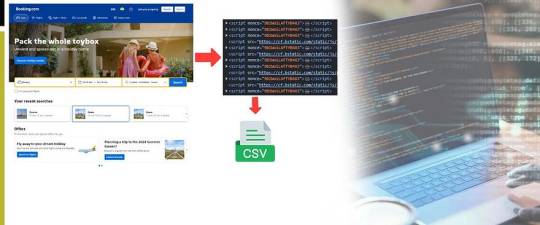
Identify Target Websites: Determine which hotel aggregators to scrape data from (e.g., Expedia, Booking.com).
Analyze Website Structure: Understand the HTML structure of the target site to identify the data points to extract.
Develop Scraping Scripts: Use web scraping tools to write scripts that extract the desired data.
Data Cleaning and Storage: Clean the extracted data and store it in a structured format, such as a database or a CSV file.
Regular Updates: Set up regular scraping schedules to keep the data up-to-date.
Ethical and Legal Considerations
While web scraping is a powerful tool, it’s essential to consider ethical and legal implications. Many websites have terms of service that prohibit scraping, and violating these can lead to legal consequences. Therefore, it’s crucial to use scraping responsibly, respect robots.txt files, and consider obtaining permission from the target sites where necessary.
Benefits of Daily Data Collection from Hotel Aggregators
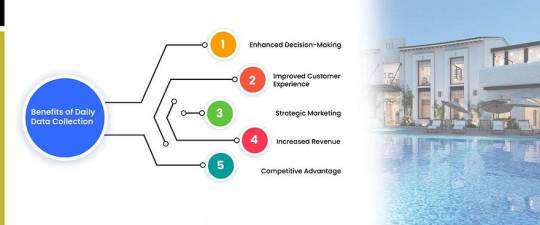
Enhanced Decision-Making
With travel prices data scraping services, businesses can make more informed decisions. Whether it’s setting competitive prices, planning marketing campaigns, or optimizing operations, having access to real-time data ensures that decisions are based on current market conditions and trends.
Improved Customer Experience
By understanding customer preferences and pain points through data analysis, hotels can enhance their service offerings to better meet guest expectations. This leads to higher customer satisfaction, positive reviews, and increased loyalty.
Strategic Marketing
Data from hotel aggregators can inform more targeted and effective marketing strategies. Understanding which destinations are trending, what amenities guests value, and the best times to offer promotions allows for more precise and impactful marketing efforts.
Increased Revenue
Optimizing pricing strategies based on competitor analysis and market trends can significantly increase revenue. Additionally, understanding peak booking periods and customer preferences helps in designing attractive packages and promotions that drive more bookings.
Competitive Advantage
In the highly competitive hospitality industry, having access to detailed and up-to-date market data provides a significant advantage. Hotels that leverage daily data effectively can outmaneuver competitors, attract more guests, and maintain a strong market position.
Tools and Technologies
Several tools and technologies can facilitate travel aggregators data scraping services:
BeautifulSoup: A Python library for parsing HTML and XML documents, useful for extracting data from web pages.
Scrapy: An open-source web crawling framework for Python, designed specifically for web scraping.
Selenium: A tool for automating web browsers, often used for scraping dynamic content that requires interaction with the web page.
Pandas: A data manipulation and analysis library for Python, useful for cleaning and organizing scraped data.
SQL Databases: For storing and querying large volumes of scraped data efficiently.
Challenges and Solutions

Data Volume and Quality
Scraping large volumes of data can be challenging, especially in terms of storage and processing. Ensuring the quality and accuracy of scraped data is also critical. Using robust data cleaning techniques and scalable storage solutions, such as cloud databases, can address these challenges.
Dynamic and Complex Websites
Some hotel aggregator websites use dynamic content loaded via JavaScript, making scraping more complex. Tools like Selenium, which can interact with web pages as a human would, are useful for scraping such sites. Additionally, staying updated with the latest web scraping techniques and tools can help navigate these complexities.
Legal and Ethical Issues
As mentioned earlier, it’s crucial to consider the legal and ethical implications of web scraping. Always check the terms of service of the target websites and respect their policies. Where possible, seek explicit permission to scrape data, and ensure compliance with data protection regulations, such as GDPR.
Conclusion
Data collection from hotel aggregators is a powerful strategy for businesses in the hospitality and travel industry. By leveraging advanced web scraping for hotel aggregators techniques, businesses can extract valuable insights from platforms like Expedia and Booking.com. These insights enable more informed decision-making, improved customer experiences, strategic marketing, and increased revenue.
While there are challenges associated with travel aggregators data scraping services, including legal and ethical considerations, the benefits far outweigh the risks when done responsibly. In the competitive landscape of the travel industry, daily data is a crucial asset that can drive success and growth. Embracing scrape hotel aggregators data from Booking.com from Travel Scrape ensures that businesses stay ahead of the curve, adapt to market changes, and continually meet the evolving needs of their customers!
Know more>> https://www.travelscrape.com/daily-data-collection-from-hotel-aggregators.php
#DataCollectionFromHotelAggregators#WebScrapingForHotelAggregators#TavelPricesDataScrapingServices#CollectHotelAggregatorsDataFromExpedia#ScrapeHotelAggregatorsDataFromBooking
0 notes
Text
The Importance of Daily Data Collection from Hotel Aggregators
This blog delves into the importance of daily data collection from hotel aggregators, the techniques involved, and the benefits for businesses in the travel industry.
Know more>> https://www.travelscrape.com/daily-data-collection-from-hotel-aggregators.php
#DataCollectionFromHotelAggregators#WebScrapingForHotelAggregators#TavelPricesDataScrapingServices#CollectHotelAggregatorsDataFromExpedia#ScrapeHotelAggregatorsDataFromBooking
0 notes
Text
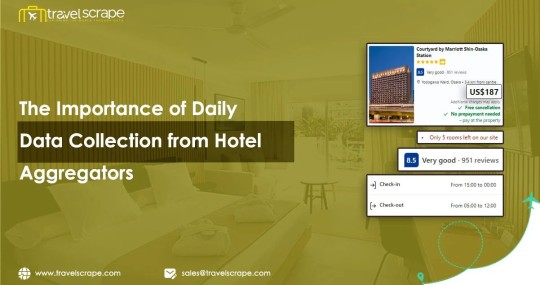
This blog delves into the importance of daily data collection from hotel aggregators, the techniques involved, and the benefits for businesses in the travel industry.
Know more>> https://www.travelscrape.com/daily-data-collection-from-hotel-aggregators.php
#DataCollectionFromHotelAggregators#WebScrapingForHotelAggregators#TavelPricesDataScrapingServices#CollectHotelAggregatorsDataFromExpedia#ScrapeHotelAggregatorsDataFromBooking
0 notes
Text
Skyscanner Flight Data Scraping | Scrape Skyscanner Flight Price Data
Elevate travel planning with Skyscanner Flight Data Scraping Solutions, providing real-time insights into airfares, promotions, and availability for informed and strategic decision-making.
Know more>> https://www.travelscrape.com/skyscanner-flight-data-scraping.php
#SkyscannerFlightDataScraping#ScrapeSkyscannerFlightPriceData#SkyscannerFlightDataExtraction#SkyscannerFlightDataCollectionServices
0 notes
Text
TripAdvisor Hotel Data Scraping | Scrape Hotel Data From TripAdvisor
Elevate your insights with TripAdvisor Hotel Data Scraping Solutions, offering comprehensive, real-time data extraction for informed decision-making in the dynamic hospitality industry
Know more>> https://www.travelscrape.com/tripadvisor-hotel-data-scraping.php
#TripAdvisorHotelDataScraping#ScrapeHotelDataFromTripAdvisor#WebScrapingTripAdvisorHotels#TripAdvisorHotelDataCollectionServices
0 notes
Text
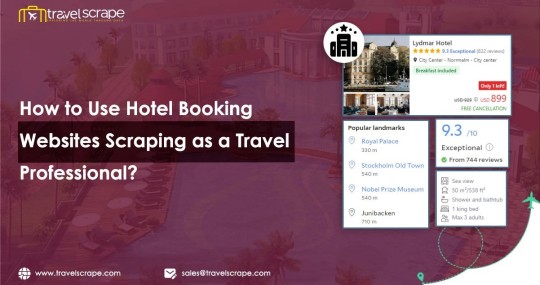
In this comprehensive guide, we will delve into the nuances of web scraping for hotel data and see How to Use Hotel Booking Websites Scraping.
Know more>> https://www.travelscrape.com/hotel-booking-websites-scraping-as-a-travel-professional.php
#HotelBookingWebsitesScraping#DataExtractionServicesforHotelsBookingWebsites#WebScrapingForHotelBookingData#CollectBookingDataFromHotel
0 notes
Text
How to Use Hotel Booking Websites Scraping As a Travel Professional
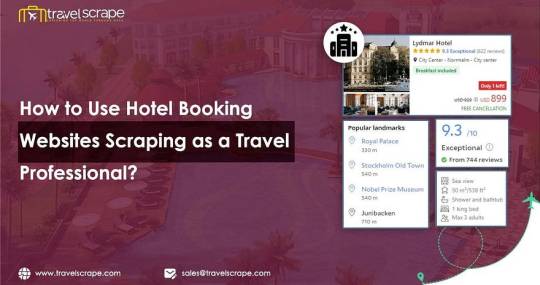
Introduction
In today’s fast-paced travel industry, staying competitive means having access to the most up-to-date information. Travel professionals need to know the best prices, the latest availability, and unique offerings from a multitude of hotels. This is where hotel booking websites scraping comes into play. By leveraging web scraping techniques, travel professionals can gather critical data from various hotel booking websites efficiently and effectively. In this comprehensive guide, we will delve into the nuances of web scraping for hotel data, explore its benefits, and provide a step-by-step guide on how to implement it.
What is Hotel Booking Websites Scraping?
Hotel booking website scraping is extracting large amounts of data from hotel booking websites using automated tools. This practice is crucial for travel professionals who must gather comprehensive information efficiently. The data collected includes room prices, availability, customer reviews, hotel amenities, etc. By automating the data collection process, travel professionals can save significant time and ensure they have the most current information.
With the utilization of hotel booking websites scraping, travel agents and companies can gain a competitive edge by accessing real-time data. This not only allows them to offer the best deals and services to their clients but also empowers them to stay ahead of the game. Additionally, data extraction services for hotels booking websites can help in analyzing market trends, understanding customer preferences, and developing competitive pricing strategies, further enhancing their competitive position.
Web scraping for hotel data involves using sophisticated tools to navigate multiple pages of hotel booking sites and extract relevant data accurately. These hotels & travel price data scraping services enable travel professionals to keep up with dynamic market conditions and respond swiftly to changes.
Data scraping in travel industry has become an indispensable tool, providing a significant edge in data-driven decision-making. It not only enhances the overall efficiency and effectiveness of travel planning and management but also reassures travel professionals about the reliability of the process. This is particularly crucial in a dynamic market where swift responses to changes are necessary for success.
Benefits of Web Scraping for Travel Professionals

Real-Time Data Access
Hotel booking websites scraping allows travel professionals to access real-time data, which is critical in an industry where prices and availability change rapidly. With up-to-date information on room prices, availability, and special deals, travel agents can offer clients the best options, enhancing client satisfaction and loyalty.
Comprehensive Market Analysis
Through data extraction services for hotels booking websites, travel professionals can gather vast amounts of data from multiple sources, enabling a comprehensive market analysis. This includes tracking price trends, seasonal variations, and customer preferences. Such insights are invaluable for creating tailored travel packages that cater to clients’ specific needs and budgets, thus differentiating a travel agency from its competitors.
Competitive Pricing Strategies
With web scraping for hotel data, travel professionals can monitor competitor pricing and adjust their offerings accordingly. By understanding the pricing strategies of other players in the market, agencies can position their services competitively. This helps attract price-sensitive customers and ensures that the agency remains relevant and competitive in a crowded market.
Enhanced Customer Experience
Providing a superior customer experience is paramount in the travel industry. Hotels & travel price data scraping services enable travel professionals to offer personalized recommendations based on the latest data. With access to detailed hotel amenities, reviews, and special offers, agents can match clients with accommodations that best suit their preferences and needs. This level of personalization can significantly enhance client satisfaction and lead to repeat business.
Efficiency and Automation
Manual data collection is time-consuming and prone to human error. Automating this process through data scraping in travel industry saves time and ensures accuracy and consistency in the data collected. This efficiency allows travel professionals to focus on more strategic activities, such as client engagement and business development, rather than being bogged down by repetitive tasks.
Improved Decision-Making
Access to a vast amount of accurate data empowers travel professionals to make informed decisions. Whether choosing which hotels to partner with or determining the best times to offer discounts, having detailed data at one’s disposal leads to better strategic decisions. This can result in increased profitability and a stronger market position.
Cost Savings
Investing in data extraction services for hotel booking websites can lead to significant cost savings. By automating data collection, travel agencies can reduce labor costs associated with manual data entry and analysis. Furthermore, accurate and timely data can help negotiate better deals with hotel partners, further driving down costs.
Hotel booking websites scraping provides travel professionals with a wealth of benefits, from real-time data access and competitive pricing strategies to enhanced customer experiences and operational efficiency. In an information-driven industry, leveraging web scraping for hotel data is a strategic imperative for staying ahead in the competitive landscape.
Step-by-Step Guide to Hotel Booking Websites Scraping
Step 1: Identify Your Data Needs

Before you start scraping, it’s important to identify what data you need. Common data points include:
Room prices
Availability
Customer reviews
Hotel amenities
Location details
Booking policies
Step 2: Choose the Right Tools
There are various tools and services available for web scraping. Some popular ones include:
BeautifulSoup: A Python library for parsing HTML and XML documents.
Scrapy: An open-source and collaborative web crawling framework for Python.
Step 3: Understand Legal and Ethical Considerations
Web scraping can sometimes run afoul of website terms of service. It’s important to:
Review the terms and conditions of the websites you plan to scrape.
Avoid overloading the website with too many requests.
Consider using APIs provided by hotel booking websites where available.
Step 4: Develop Your Scraping Script
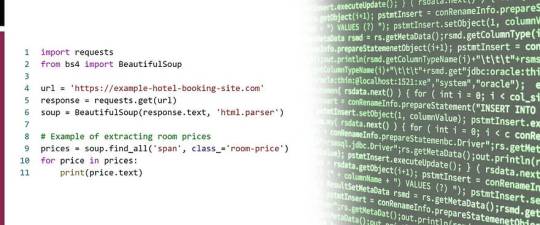
If you choose a coding approach, you will need to develop a script. Here’s a simple example using Python and BeautifulSoup:
Step 5: Extract and Store Data
Once your script is running and data is being extracted, you’ll need a place to store it. Options include:
Databases: SQL or NoSQL databases for structured data.
CSV Files: For smaller datasets and easy access.
Cloud Storage: Services like AWS or Google Cloud for scalable storage solutions.
Step 6: Clean and Analyze Data

Raw data often requires cleaning to remove duplicates, fill in missing values, and ensure consistency. Tools like Pandas in Python can help with this process.
Step 7: Use the Data
Now that your data is cleaned and analyzed, it can be used to:
Update your travel agency’s website with the latest prices and availability.
Provide personalized recommendations to clients.
Develop marketing strategies based on price trends and customer reviews.
Challenges and Solutions in Web Scraping
Website Changes
Hotel booking websites frequently update their layout and structure, which can break your scraping script. Regular maintenance and updates to your scraping code are necessary.
Captcha and Bot Detection
Websites often use Captchas and other bot detection mechanisms. Solutions include:
Using rotating IP addresses and proxies.
Employing headless browsers to mimic human browsing behavior.
Data Quality Issues
The data extracted may have inconsistencies or errors. Implementing robust data validation and cleaning processes can mitigate these issues.
Ethical Considerations and Best Practices
Respect Website Terms of Service
Always review and comply with the terms of service of the websites you are scraping. Some websites prohibit scraping altogether.
Use Data Responsibly
Ensure that the data collected is used ethically and responsibly. Avoid using the data for misleading or harmful purposes.
Rate Limiting
Incorporate rate limiting into your scraping script to prevent overwhelming the website with excessive requests in a short time.
Transparency
If possible, inform the website owner of your scraping activities and the purpose behind them. This can help in maintaining a good relationship and potentially gaining direct access to their data through APIs.
Future Trends in Hotel Booking Websites Scraping
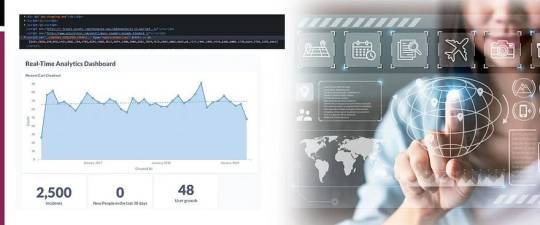
AI and Machine Learning
The integration of AI and machine learning can enhance web scraping capabilities. Predictive models can be developed to forecast price changes and availability trends.
APIs and Data Integration
More hotel booking websites are offering APIs, which provide a more structured and reliable way to access data. Integrating these APIs can simplify the data extraction process and improve accuracy.
Real-Time Data Analytics
The demand for real-time data analytics is growing. Advanced scraping tools combined with powerful analytics platforms can provide instant insights, allowing travel professionals to make quicker and more informed decisions.
Increased Regulation
With data privacy concerns on the rise, increased regulation around web scraping and data usage is expected. Staying compliant with these regulations will be crucial for the continued use of web scraping in the travel industry.
Conclusion
Hotel booking websites scraping is a powerful tool for travel professionals, offering numerous benefits from real-time data access to competitive pricing strategies. By understanding and implementing effective web scraping techniques, travel professionals can enhance their services, stay ahead of the competition, and provide unparalleled client experiences. As the industry evolves, staying updated with the latest tools and best practices in web scraping will be essential for ongoing success.
Whether you are a seasoned travel professional or just starting out, leveraging data extraction services for hotel booking websites can transform your operations, making you more efficient and competitive in the ever-changing travel landscape.
Take your travel business to the next level with Travel Scrape — contact us today to learn more about our cutting-edge scraping solutions and start reaping the benefits!
Know more>> https://www.travelscrape.com/hotel-booking-websites-scraping-as-a-travel-professional.php
#HotelBookingWebsitesScraping#DataExtractionServicesforHotelsBookingWebsites#WebScrapingForHotelBookingData#CollectBookingDataFromHotel
0 notes
Text
How to Use Hotel Booking Websites Scraping As a Travel Professional
In this comprehensive guide, we will delve into the nuances of web scraping for hotel data and see How to Use Hotel Booking Websites Scraping.
Know more>> https://www.travelscrape.com/hotel-booking-websites-scraping-as-a-travel-professional.php
#HotelBookingWebsitesScraping#DataExtractionServicesforHotelsBookingWebsites#WebScrapingForHotelBookingData#CollectBookingDataFromHotel
0 notes
Text
Web Scraping Price Airbnb Data with Python – A Complete Guide
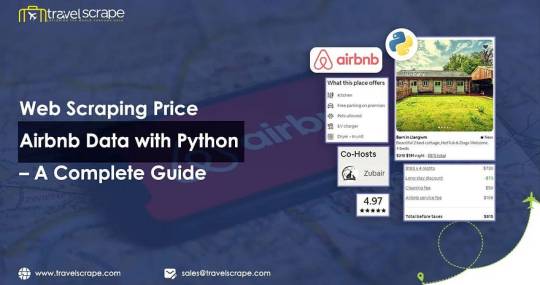
Introduction
Web scraping is a powerful tool that allows us to collect large amounts of data from websites efficiently. This guide will walk you through the process of scraping Airbnb price data using Python, providing you with the knowledge and tools to extract valuable information from Airbnb listings. We will cover everything from setting up your environment, handling potential challenges, and best practices for ensuring your scraping activities are efficient and respectful of website terms of service.
Introduction to Web Scraping
Web scraping involves extracting data from websites for various purposes, such as market research, data analysis, and competitive analysis. It allows businesses and individuals to gather valuable information from the web efficiently. Regarding scraping price data from Airbnb listings, Python offers powerful libraries that make the process straightforward and effective.
Python’s automation capabilities are particularly valuable in web scraping, allowing for the extraction of price data and other relevant information from Airbnb listings. This functionality is especially useful for market trend analysis, competitor monitoring, and price comparison. Popular libraries like BeautifulSoup and Selenium are commonly used for web scraping, with BeautifulSoup excelling in parsing static HTML content and Selenium proving effective for interacting with dynamically loaded web pages.
For instance, if you want to collect Airbnb data from hotel-like listings or compare Airbnb prices with traditional hotels, web scraping can provide comprehensive datasets for analysis. By scraping hotel price data and Airbnb listings, you can gain insights into pricing strategies, occupancy rates, and other market dynamics. Web scraping thus becomes a crucial tool for making informed decisions based on real-time data.
Why Scrape Airbnb Listing Data?
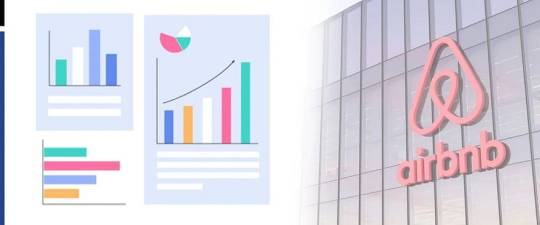
Scraping Airbnb listing data offers numerous advantages for individuals and businesses looking to gain insights into the short-term rental market. This data can be invaluable for market research, price analysis, and competitive intelligence, providing a clear picture of current trends and opportunities.
Market Research
One primary reason to scrape hotel price data is to conduct comprehensive market research. Collecting data on listings allows you to analyze various metrics such as pricing, availability, location, and amenities. This information helps understand the market dynamics, identify high-demand areas, and recognize seasonal trends. For investors and property managers, such insights are crucial for making informed decisions about property acquisitions and pricing strategies.
Price Analysis
Web scraping price Airbnb data with Python allows you to monitor and compare rental prices across different locations and property types. By regularly collecting this data, you can track changes in pricing strategies, identify underpriced or overpriced listings, and adjust your pricing model accordingly. This is particularly useful for hosts seeking to maximize revenue and maintain competitive pricing.
Competitive Intelligence
Collecting Airbnb data from hotel-like listings provides valuable competitive intelligence. By analyzing the features and prices of comparable hotel rooms and Airbnb properties, businesses can identify their strengths and weaknesses relative to their competitors. This information is vital for developing strategies to enhance the attractiveness of their offerings and improve occupancy rates.
Strategic Decision Making
For businesses in the hospitality industry, web scraping for hotel data and Airbnb listings helps in strategic planning. By combining data from both sources, you can perform a thorough comparative analysis. This can reveal consumer preference trends, highlight market gaps, and inform decisions on new property developments or service enhancements.
Setting Up Your Environment
To start scraping data from Airbnb, you need to set up your Python environment. You’ll need to install several libraries, including requests, BeautifulSoup, and Selenium.
Installing Required Libraries
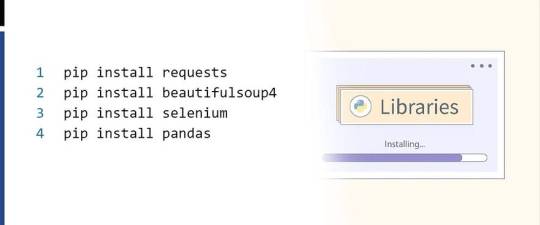
First, ensure you have Python installed on your machine. Then, install the necessary libraries using pip:
Understanding Airbnb’s Structure
Before you start scraping, it’s crucial to understand the structure of Airbnb’s web pages. Airbnb listings contain various elements such as the listing title, price, location, and more. Inspecting the HTML structure of a typical Airbnb listing page will help you identify the elements you need to scrape hotel price data.
Inspecting Elements
You can use your browser’s developer tools (right-click on the page and select “Inspect”) to explore the HTML structure. Look for elements containing the data you want, such as the price.
Extracting Data with BeautifulSoup
BeautifulSoup, a Python library, excels in parsing HTML and XML documents. It constructs parse trees from webpage source codes, enabling efficient extraction of desired data.
Basic Example
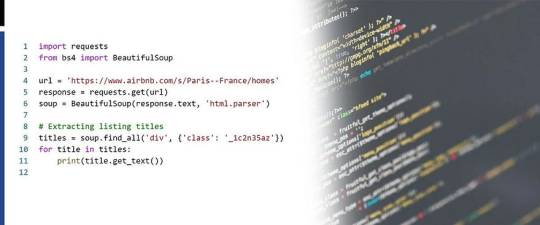
Here’s a simple example of using BeautifulSoup to extract data from a static webpage:
This script fetches the webpage and parses it to find listing titles. You’ll need to adjust the find_all method parameters to match the actual class names used in Airbnb’s HTML.
Using Selenium for Dynamic Content
Airbnb uses JavaScript to load content dynamically, which means some data might not be available in the initial HTML. Selenium is a tool that can automate web browsers and is ideal for scraping dynamic content.
Setting Up Selenium
First, download a WebDriver compatible with your browser (e.g., ChromeDriver for Google Chrome) and ensure it’s in your PATH.
Scraping with Selenium
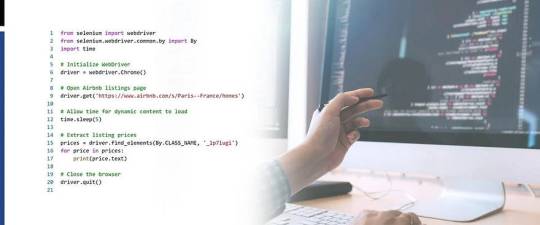
Here’s an example of how to use Selenium to scrape dynamically loaded content:
This script opens a browser, navigates to the Airbnb listings page, waits for the content to load, and extracts the prices.
Handling Captchas and Anti-Scraping Measures
Websites often implement measures to prevent automated scraping. Airbnb may use techniques such as CAPTCHAs or rate limiting.
Strategies to Handle These Measures
Proxies and User Agents: Use rotating proxies and user agents to avoid detection.
Delay Requests: Implement random delays between requests to mimic human behavior.
CAPTCHA Solving Services: Consider using third-party CAPTCHA solving services if necessary.
Data Storage and Analysis
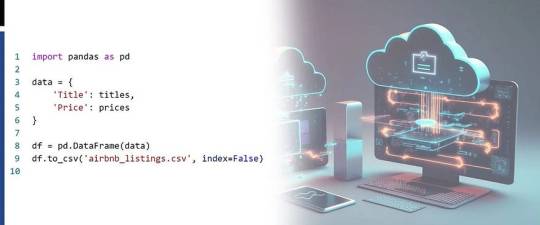
Once you have scraped the data, you’ll want to store it in a structured format for analysis. Common formats include CSV, JSON, and databases like SQLite or MongoDB.
Saving Data to a CSV File
Here’s how to scrape hotel price data and save to a CSV file using pandas:
Analyzing the Data
With the data stored, you can perform various analyses, such as average price calculations, trend analysis, or price comparisons between different locations.
Ethical Considerations and Best Practices
Web scraping should be done responsibly and ethically. Here are some best practices:
Respect Terms of Service: Always review and adhere to the website’s terms of service.
Avoid Overloading Servers: Make requests at reasonable intervals to avoid overwhelming the website’s servers.
Use Data Responsibly: Ensure that the data you collect is used in a manner that respects user privacy and the website’s guidelines.
Conclusion
Web scraping price data from Airbnb listings with Python can provide valuable insights for market analysis, competitive intelligence, and more. By using tools like BeautifulSoup and Selenium, you can efficiently collect and analyze data while adhering to ethical scraping practices. Whether you need to scrape Airbnb listing data with Python or collect Airbnb data from hotel-like listings, these tools are essential for gaining a competitive edge. Remember to respect the website’s terms of service and use the data responsibly. With this guide, you now have the foundation to start web scraping price Airbnb data with Python effectively. Happy scraping!
Ready to transform your travel data analysis? Visit Travel Scrape and start your journey today!
Know more>> https://www.travelscrape.com/web-scraping-price-airbnb-data-with-python.php
#ScrapeAirbnbListingDataWithPython#WebScrapingPriceAirbnbDataWithPython#CollectAirbnbDataFromHotel#ExtractAirbnbDataFromHotel
0 notes
Text
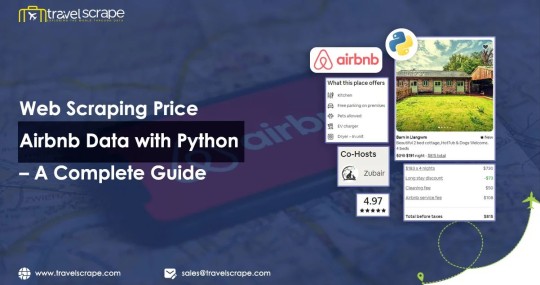
Comprehensive guide on using Python for web scraping Airbnb price data, covering setup, techniques, and best practices for data extraction.
Know more>> https://www.travelscrape.com/web-scraping-price-airbnb-data-with-python.php
#ScrapeAirbnbListingDataWithPython#WebScrapingPriceAirbnbDataWithPython#CollectAirbnbDataFromHotel#ExtractAirbnbDataFromHotel
0 notes
Text
Web Scraping Price Airbnb Data with Python – A Complete Guide
Comprehensive guide on using Python for web scraping Airbnb price data, covering setup, techniques, and best practices for data extraction.
Know more>> https://www.travelscrape.com/web-scraping-price-airbnb-data-with-python.php
#ScrapeAirbnbListingDataWithPython#WebScrapingPriceAirbnbDataWithPython#CollectAirbnbDataFromHotel#ExtractAirbnbDataFromHotel
0 notes
Text
Airbnb Hotel Data Scraping | Scrape Hotel Data From Airbnb
Elevate your insights with Airbnb Hotel Data Scraping Solutions, offering comprehensive, real-time data extraction for informed decision-making in the dynamic hospitality industry
Know more>> https://www.travelscrape.com/airbnb-hotel-data-scraping.php
#AirbnbHotelDataScraping#ScrapeHotelDataFromAirbnb#ExtractAirbnbHotelData#CollectHotelDataFromAirbnb
0 notes
Text
Hotel Data Scraping Solutions - Scrape Hotel Price Data
Comprehensive guide on scraping package providers data from Airbnb listings, offering insights for strategic decision-making and growth.
Know more>> https://www.travelscrape.com/hotel-data-scraping.php
0 notes
Text
How to Scrape Google Flights with Python?

Introduction
In today’s travel landscape, where every minute detail can impact one’s journey, having access to precise flight information is indispensable for travelers aiming to secure the most favorable deals and seamless itineraries. Google Flights is a beacon in this realm, offering travelers a robust platform with advanced flight search and comparison functionalities. However, manually gathering and analyzing flight data from Google Flights can prove arduous and ineffective.
This is where the power of Python and web scraping techniques come into play. Travelers and businesses can streamline to collect flight data from Google Flight data by leveraging Python’s capabilities and employing web scraping methodologies. Whether comparing prices, exploring different travel options, or tracking flight trends, web scraping Google Flight prices with Python offers a practical and efficient solution.
This guide delves into the intricacies of scraping Google Flights with Python, exploring techniques to collect flight data from Google Flight data, analyzing flight prices, and uncovering valuable insights to optimize travel planning. From understanding the fundamentals of web scraping for flight websites to harnessing Python libraries like BeautifulSoup and Selenium, we’ll equip you with the knowledge and tools needed to navigate the world of flight prices data scraping services effectively.
Understanding Google Flights
Google Flights is a powerful online flight search engine provided by Google. It is designed to simplify the process of finding and booking flights. It offers users a user-friendly interface and many efficient flight planning and booking features.
Google Flights’ standout feature is its extensive search functionality. You can search for flights based on a variety of criteria, including destination, dates, number of passengers, and preferred airlines. The platform also offers flexible date options and displays prices for different days, empowering you to find the most budget-friendly travel options.
Google Flights also provides users valuable information about flight details, including flight durations, layovers, and airline options. Users can easily compare prices and choose the best flight itinerary based on their preferences and budget.
Google Flights goes the extra mile by offering a price tracking feature. This tool allows you to keep a close eye on price changes for specific flights and receive notifications when prices drop. Stay informed and seize the best flight deals with this invaluable feature.
Overall, Google Flights is a valuable tool for travelers, providing them with the information and tools they need to plan and book their flights quickly and confidently.
Why Scrape Google Flights Data?
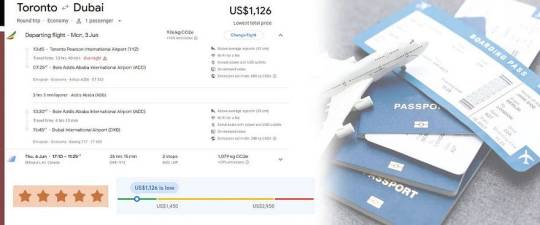
Scraping Google Flights data offers numerous benefits for travelers, travel agencies, and businesses alike, providing valuable insights and opportunities for optimizing travel planning, pricing strategies, and competitive analysis. Here are some compelling reasons to scrape Google Flights with Python:
Access to Comprehensive Flight Information: By scraping Google Flights data, travelers gain access to comprehensive flight information, including prices, schedules, airlines, and available routes. This enables travelers to compare options, find the best deals, and plan their trips more efficiently.
Price Monitoring and Tracking: Web scraping Google Flight prices allows travelers to monitor price fluctuations for specific flights over time. By tracking price trends, travelers can identify optimal booking times, take advantage of price drops, and secure the most cost-effective travel options.
Flexible Date Analysis: Google Flights offers flexible date options that allow users to compare prices for different travel dates easily. By scraping Google Flights data, travelers can analyze price variations across multiple dates and identify the most affordable travel options, saving both time and money.
Customized Itinerary Planning: With access to detailed flight data from Google Flights, travelers can customize their itinerary based on preferences such as preferred airlines, layover durations, and departure/arrival times. This flexibility enables travelers to create personalized travel plans that suit their specific needs and preferences.
Competitive Analysis for Travel Agencies: For travel agencies and businesses in the travel industry, scraping Google Flights data provides valuable insights into pricing trends, competitor strategies, and market dynamics. By analyzing flight prices data scraping services, businesses can identify opportunities for competitive pricing, optimize inventory management, and enhance their overall competitiveness in the market.
Market Research and Forecasting: Scraping Google Flights data facilitates market research and forecasting for the aviation industry. By analyzing historical flight data and trends, industry analysts can gain valuable insights into passenger demand, route popularity, and market dynamics, helping airlines and other stakeholders make informed decisions and strategic planning.
Enhanced Customer Experience: By leveraging scraped Google Flights data, travel agencies and online booking platforms can offer customers a more seamless and personalized booking experience. By providing accurate and up-to-date flight information, businesses can enhance customer satisfaction, build loyalty, and increase repeat bookings.
Scraping Google Flights data with Python and web scraping techniques offers numerous benefits for travelers, travel agencies, and businesses in the travel industry. From accessing comprehensive flight information to monitoring price fluctuations, conducting competitive analysis, and enhancing the overall customer experience, web scraping Google Flights data provides valuable insights and opportunities for optimizing travel planning and decision-making.
Scraping Google Flights with Python
Scraping Google Flights with Python involves using web scraping libraries such as BeautifulSoup or Selenium to extract flight data from the Google Flights website. Here’s a step-by-step guide to scraping Google Flights with Python:
Installing Required Libraries

Before getting started, ensure that you have Python installed on your system along with the necessary libraries. You can install BeautifulSoup and Selenium using pip:
Setting Up Selenium WebDriver
If you choose to use Selenium for web scraping, you’ll need to download the appropriate WebDriver for your preferred web browser (e.g., ChromeDriver for Google Chrome). Make sure to place the WebDriver executable in your system’s PATH or specify its location in your Python script.
Writing the Scraping Script
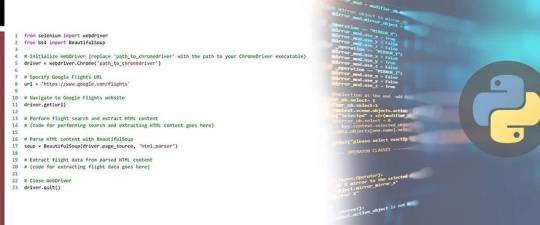
Next, write a Python script to scrape flight data from Google Flights. You can use BeautifulSoup to parse the HTML content of the search results page or Selenium to automate interactions with the website.
Extracting Flight Data
Once you have the HTML content of the search results page, use BeautifulSoup to extract relevant flight data such as prices, airlines, departure/arrival times, and flight durations. You can identify the HTML elements containing this information by inspecting the page source or using browser developer tools.
Storing and Analyzing Flight Data
After extracting flight data, you can store it in a structured format such as a CSV file or database for further analysis. Analyze the data to identify trends, compare prices across different airlines and dates, and make informed decisions when planning your travels.
Conclusion
Scraping Google Flights with Python empowers travelers and businesses to unlock valuable flight data, revolutionizing the travel planning process. Whether pursuing unbeatable deals, scrutinizing pricing patterns, or meticulously comparing flight options, web scraping emerges as a formidable ally, streamlining data collection and analysis with precision. Ready to elevate your travel planning game? Harness the power of web scraping and embark on a journey of optimized travel experiences and unparalleled insights. Contact Travel Scrape where every journey begins with data-driven decisions!
Know more>> https://www.travelscrape.com/scrape-google-flights-with-python.php
#ScrapeGoogleFlightswithPython#WebScrapingGoogleFlightPrices#CollectFlightDataFromGoogleFlightData#ExtractFlightDataFromTheGoogleFlightsWebsite
0 notes